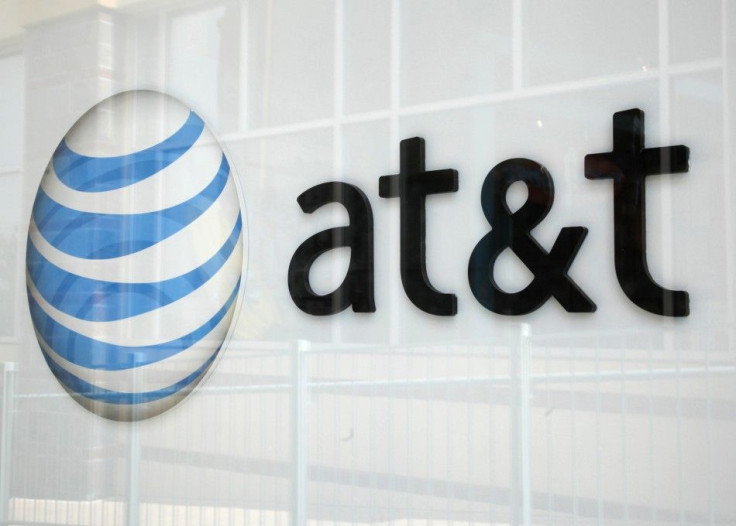AT&T, T-Mobile: Breaking Up is Hard to Do
OPINION

AT&T's embarrassing debacle of pursing a merger with T-Mobile USA and posturing like federal regulatory approval was a given is public evidence of what others have quietly mused behind the scenes for some time -- that the telecommunications company is facing big internal problems.
Consider the critical miscommunication between AT&T and the U.S. Justice Department. On Wednesday, AT&T made international news for announcing it planned to bring 5,000 call center jobs previously sent abroad back to the United States if its merger with T-Mobile USA is approved and finalized.
The company also said it would maintain its and T-Mobile's more than 25,000 call center jobs already in the U.S. if the deal is approved. The move was a political play aimed at appeasing some members of Congress who have struggled with the merger and required federal approval.
For example, one lawmaker, Sen. Al Franken, a Democrat from Minnesota, wrote in a letter to two federal regulators reviewing the AT&T/T-Mobile deal that it is fair to assume that layoffs constitute a substantial portion of the deal's promised cost savings. Other politicians have also expressed concern over the proposed merger.
So AT&T went on the political attack, committing to bring back and protect call center jobs in the U.S., thinking it had crossed the only hurdle that really mattered.
Does this shore up an issue that people have? Randall Stephenson, AT&T's chief executive, said in an interview with The New York Times on Tuesday. Sure, I hope it does.
On Wednesday morning, Stephenson said in a television interview that he expected his company's bid for T-Mobile USA to get government approval in the first quarter of 2012. One hour later, however, his lawyers received a call from the Justice Department explaining how the government was suing to block the $39 billion deal, according to a report from Bloomberg.
Talk about crossed lines of communication.
But communication has been a problem for AT&T for some time, as the company has managed with deep cuts in traditional business services while growing its better-run and managed wireless network despite significant infrastructure issues. Combined, troubles from the two core lines of AT&T's business have resulted in operations that behind the scenes haven't been running nearly as smoothly as one might expect for one of the world's largest communications companies.
It's not that AT&T has been able to completely hide its problems from Wall Street. The company's stock has traded in a narrow range from a 52-week low of $27.06 to a 52-week high of $31.94 in the past year, hanging around current levels near $28 in part because of a 6 percent dividend yield.
Dallas-based AT&T made no secret of the fact that the company's much-depended upon wireless network will face major challenges in the short term if the company is unable to begin integrating T-Mobile USA's infrastructure.
With this deal, we're set for both the short and long haul, AT&T Mobility CEO Ralph de la Vega said in an interview in March.
One of the key drivers [for the deal] was the need for additional spectrum, de la Vega said, speaking on a panel at the CTIA Wireless conference in the spring. It resolves the pending spectrum challenges that we're facing in major cities.
Call it Apple's iPhone dilemma.
The company has had success in recent years as it was the first U.S. iPhone carrier and only until Verizon was added by Apple this year. But company executives underestimated how much smartphone consumers would use devices beyond traditional phone calls. The company's wireless infrastructure has simply been overburdened.
That's exactly why AT&T pushed ahead on the T-Mobile merger, publicly pretending like federal regulatory was a given despite strong observations from many analysts predicted that AT&T could see major scrutiny from the regulating body that must approve the deal.
The fact of the matter is rather simple on why AT&T took the expensive risk, spending millions on lobbyists and preparing to meld the company's business with T-Mobile's business and infrastructure. With its traditional landline and high-end business telecommunications business in disarray with service problems and amid usage decline and payroll downsizing, the company's profitable future rests upon solving its wireless infrastructure problem.
For AT&T, it's a make or break proposition for the future. The company has cash, yes, but it needs an infrastructure solution to come quickly -- thus, the planned acquisition of T-Mobile. Effectively backed in a corner, the company had no choice but to proceed and push for approval, greasing lawmakers and acting as if it would eventually happen, no matter what.
But the Justice Department didn't see it that way. As research of national and local markets showed the merger to be highly uncompetitive, AT&T was asked to lay out a game-changing national remedy to eliminate what the Justice Department saw as anticompetitive defects with the merger, according to Bloomberg.
AT&T apparently thought it would have more time to present ideas on how the anticompetitive problems could be overcome. That, or the company simply could not solve them, because the challenge was so great. As one expert said, the merger would create dangerous levels of anticompetitive concentration in 97 of the top 100 markets in America. Solving that in the deal is nearly impossible.
AT&T has known about that issue all along, of course. But it appears that the company pushed ahead anyway with a big risky bet, hoping that by schmoozing lawmakers and pretending like there wasn't any problem it could merge with T-Mobile and solve its infrastructure problem.
At the moment, however, it appears AT&T's big bet isn't going to pay off. Instead, it looks more like a bonehead move that smacks of desperation gone awry.
© Copyright IBTimes 2024. All rights reserved.





















